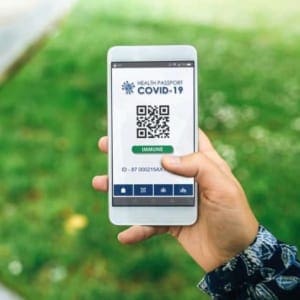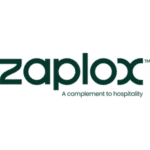 Just as the race to invent a vaccine dominated headlines months ago, the topic du jour at the center of getting back to life’s great pleasures -including cross-border travel- is the health passport.
Just as the race to invent a vaccine dominated headlines months ago, the topic du jour at the center of getting back to life’s great pleasures -including cross-border travel- is the health passport.
Like most things these days, the race is on to eliminate paper and all of the associated problems and inconveniences. The concept of a health or immunity passport is a digital pass that enables a person’s test results or vaccination status to be registered and proved on our phone (or watch).
Skeptics understandably point to complexities over positive ID match, the specificity of testing, timing, and data privacy. Nonetheless, business travelers looking to return to the road long for ease, bypassing check-in counters and lines at security and border control checkpoints. These proponents see a health passport as the holy grail to resuming life as we knew it, and fast.
Major tech providers and new entrants have made headway working with some airlines, testing multiple solutions and building components of their own out of absolute necessity.
IATA introduced its Travel Pass, which contains a set of modules to help airlines and their passengers understand destination requirements, find testing locations, securely transfer results to a device, and prove they’ve met COVID-19 testing requirements. This week, Emirates became one of the first airlines to announce its partnership.
The Common Project’s Common Pass, backed by the World Economic Forum (WEF), is also being tested by multiple airlines and governments.
So far, the focus remains on proving testing results. Proof of vaccination is not yet a substitute in any travel situation yet seen.
Every week brings new developments and different players putting forth solutions, making for a lot of cooks in the kitchen. It’s understandable, and perhaps a necessary phase of evolution. However, most of us probably yearn for one ‘simple’ solution that brings us back to the good old days of moving from place to place with ease.
A unified approach is no mean feat. There are complexities at every layer around types of tests, timing requirements, and different approaches by different governments
Meanwhile, innovation calls for healthy competition and the ability and opportunity for different players to create superior customer experiences. But if that is done in a patchwork, the industry and ecosystem as a whole will suffer.
Cross-collaboration and the path forward
My belief is that we are in a somewhat necessary but risky period of hyper-competition to find the best path forward and best components of an ideal solution. The risk lies in a patchwork scenario where an individual has to follow a different process or use a different app every time they travel based on their itinerary. If the industry could agree on a common way to make proving covid test results achievable, via digital means, we can recover as a whole more quickly. The other risk we run is without these common standards, we will likely end up managing more paperwork; ripe for error, inefficiency, and potential fraud.
A set of standards around ID verification, Covid testing types and providers, proof of results, and interoperability of QR or barcodes would require collaboration and agreements across governments, service providers such as airlines, and input from tech providers. Those standards – once agreed and adopted – would need to be published and then governed so tech and service providers could map and build to the specifications. A qualification process for testing and technology providers would likely lend to the best blend of healthy competition and a better consumer experience.


















